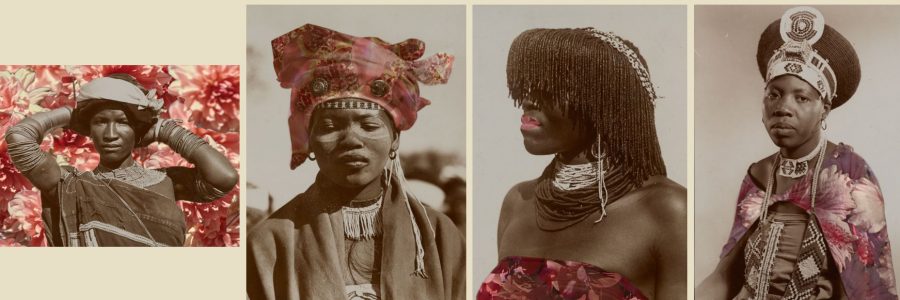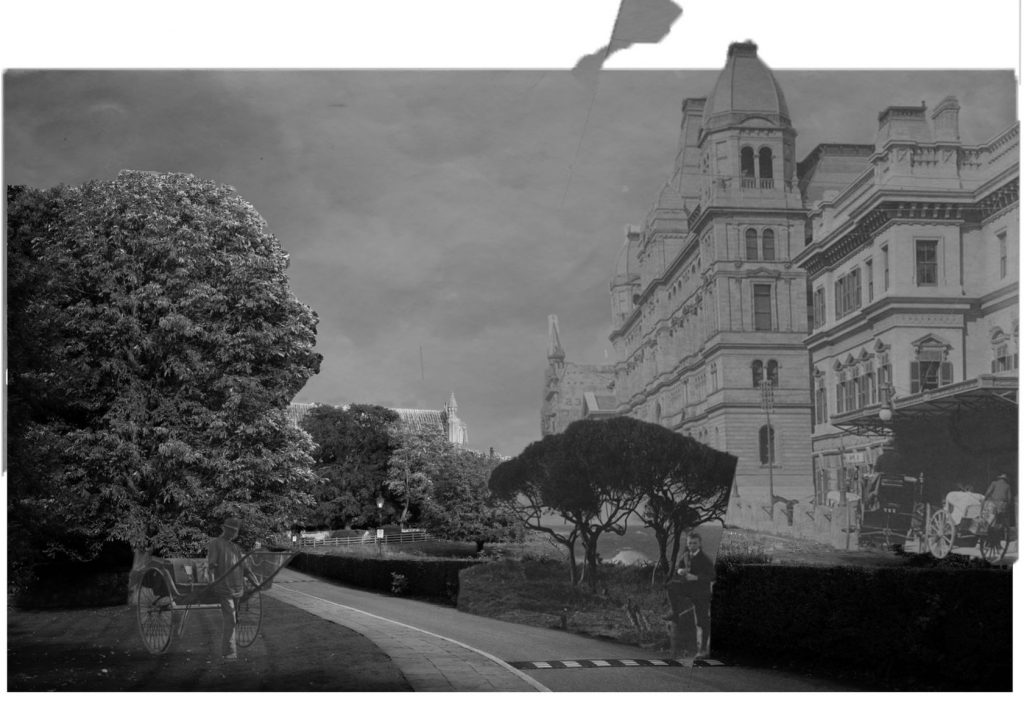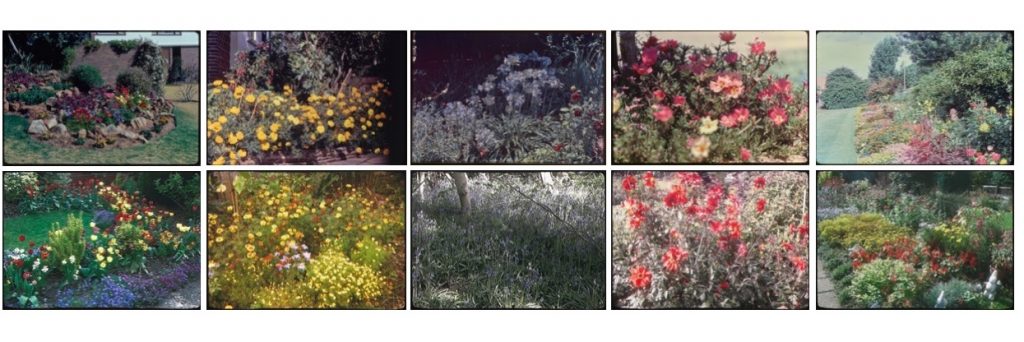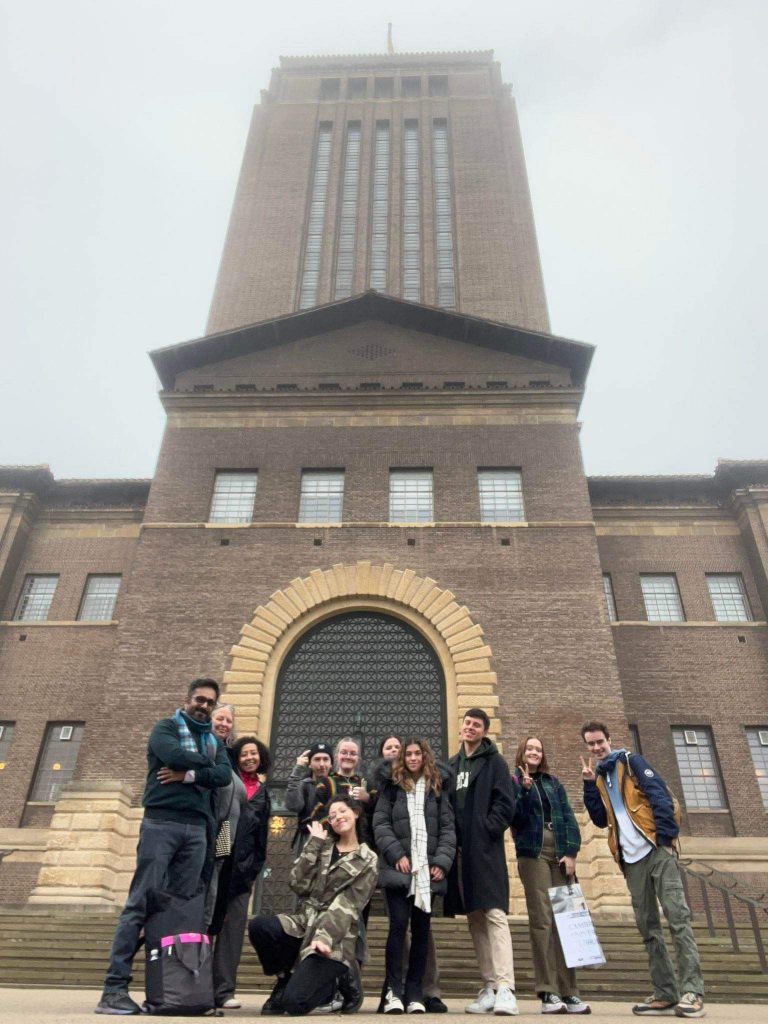
Decolonising photographic practices: the outcomes of collaboration between the Cambridge School of Art and the Royal Commonwealth Society collection
Last term Cambridge University Library welcomed a group of second-year photography students from the Cambridge School of Art, Anglia Ruskin University (ARU), as part of an innovative collaboration to creatively respond to photographic material held in the Royal Commonwealth Society (RCS) collection. The five-week teaching block, part of a wider module titled ‘Media, Process, Situation’, encouraged the students to develop and explore decolonising photographic practices. Facilitated by Kerstin Hacker (Co-course leader, BA (Hons) Photography, ARU), Shaikh Bashir (associate lecturer, ARU) and Jenni Skinner (African Studies Library Manager), we were delighted to welcome the photography students to critically examine and creatively respond to colonial-era photographic archives.
As part of a wider shared digital curation project focusing on material relating to Southern Africa (see earlier post for details of the project funded by Carnegie Corporation of New York), the students were given access to newly digitised photograph collections. Curators at the UL introduced the RCS collection as a whole and gave an overview of the photograph collections on display, focusing on the historical context of their creation, provenance and the challenges of description, including appropriate terminology. Wider discussion on the day centred on power structures in photography, the ethics of photographic consent and issues of visual representation.
During the teaching block students were introduced to creative practitioners, engaged with archival material and spent four weeks carrying out creative practice research in response to the RCS material. Below is a snapshot of the outcomes of this collaboration and a summary of the lively discussion which followed the student presentations.

Marnham collection (RCS/Marnham)
This collection of slides documents the work and travels of John Ewart Marnham (1916-1985), a British civil servant who held various diplomatic posts in the Colonial and later Foreign Office. He served as Consul-General in Johannesburg between 1967 and 1970. The collection was presented to the RCS Library by Marnham’s widow in 1987. Some 700 slides in the collection relate to Marnham’s time in South Africa (classmark: RCS/Marnham/Q-Z), showing his home life in Johannesburg, revealing a love of gardening and flowers, as well as visits he undertook to Eswatini (then Swaziland), Botswana (then Bechuanaland) and Lesotho (then Basutoland) as part of a British economic mission to the territories.
There was much interest in Marnham’s garden. The group discussed broad themes such as the invisible or unacknowledged labour which supported colonial endeavour and the incongruity of recreating a piece of the Mother Country, a ‘Little England’, abroad. The images of Marnham’s garden also raised issues about the contestation of colonial spaces and colonial claims of ‘taming the wilderness’ or ‘advancing civilization’. In the response below, Aleksandra Parzych juxtaposed photographs of her father’s garden in suburban Bedford with similar images from the Marnham collection to draw out some of these contradictions.

Killie Campbell album (RCS/Y305O)
This is an untitled album assembled by Margaret ‘Killie’ Campbell (1881-1965) documenting the peoples of southern Africa. The sepia-toned prints were taken in the late 1940s by various photographers and artists, including Mignon Herring, Barbara Tyrrell, Lyn Acutt and Killie Campbell. There are accompanying typescript captions and explanatory notes supplied by Campbell, some of which use anachronistic or inaccurate terms to describe individuals or groups of peoples. The album was presented to the RCS Library in 1950 by Killie Campbell, a longtime member of the society.
The group discussed some of the contentious issues presented by the album and its arrangement, in particular the use of the term ‘tribe’ and the homogenisation of groups of peoples. Issues of photographic consent were also discussed as the group noted that none of the individuals documented in the album were identified by name.
In the response below, Alex Tiffin investigated the technique of colourisation as an attempt to give agency back to the anonymous individuals. Based on his research on the work of Barbara Tyrrell (Tribal peoples of Southern Africa, 1968), Seydou Keïta, the Malian photographer, and Patrick Waterhouse, as well wider research on fabric and patterns, Alex was able to reimagine and reinvigorate several photographs from the album, one of which is shown below.
In a similar vein, Martina Sanzeri responded to the album by choosing to remove the original captions of the photographs. She was inspired to create a new narrative for the women documented in the album, using the symbolism of various flowers depicted in John Marnham’s garden (see above) to imbue qualities such as pride, kindness, grace, hope and confidence. An example is shown below using an image of a tiger flower (Tigridia pavonia), typically associated with the qualities of self-confidence and self-pride.
Reflecting on the teaching block and interaction with the RCS collection, Kerstin Hacker said, ‘It is wonderful to create collaborations between Cambridge University Library and the Cambridge School of Art. Our students thoroughly enjoyed their visit and the access they had to the RCS archive. Opening up this newly digitised material to creative practitioners can shine a light on the collection and allows alternative access points to the material’. Given the success of the session, a first-of-its-kind collaboration between the Cambridge School of Art and the UL, it is hoped that further sessions can be arranged to build on this partnership.
For further details on the shared digital curation project, to get involved or to learn more about the RCS collection relating to southern Africa please contact rcs@lib.cam.ac.uk.




Great